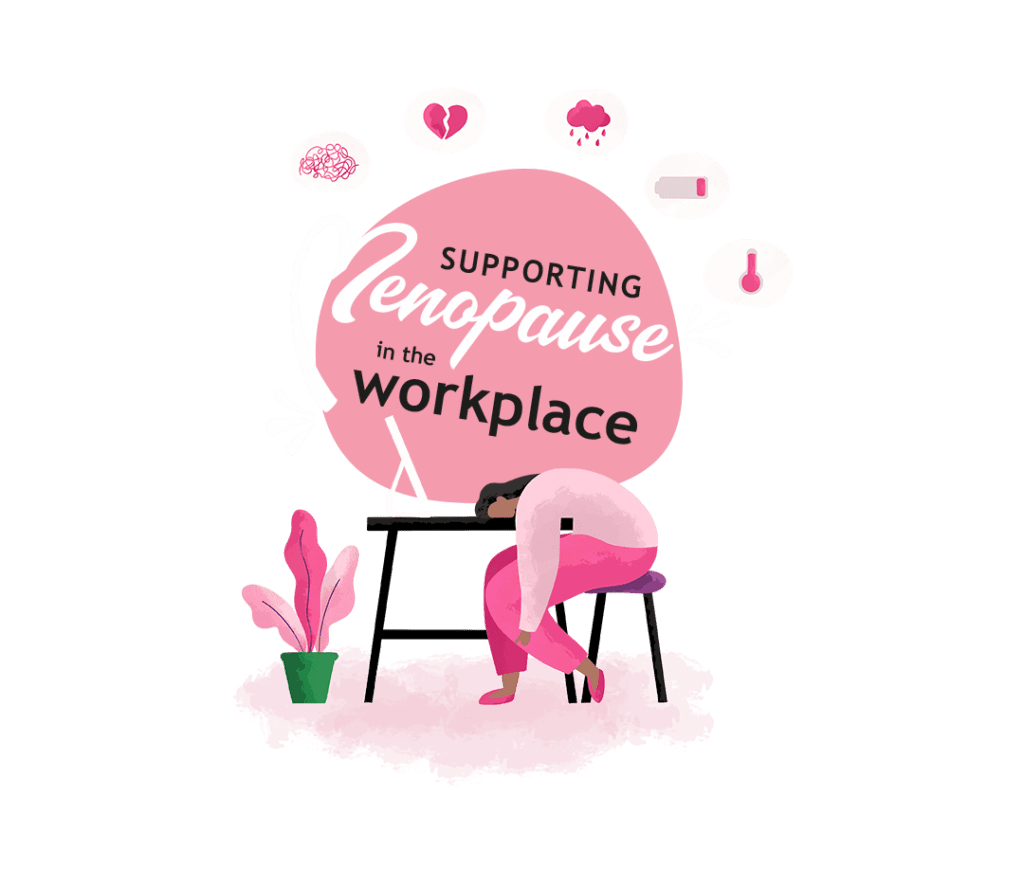
900,000
women have left their job due to the menopause
The 2023 study by the UK Parliament on menopause shows that the number of women who will experience menopause whilst in employment is increasing and women are also staying in work for longer.
Evidence to the inquiry pointed out that women in their 60’s are highly skilled and experienced, typically at the peak of their careers, and are role models for younger workers.
2017 research commissioned by the Government Equalities Office (GEO) found that, whilst all female workers will experience menopause transition in their working lives, “the menopause is not well understood or provided for in workplace cultures, policies and training.”
Contact us now to explore ways Promensil can support you
How can Promensil help?
Promensil can
Help you make practical adjustments, provide workplace education and create a supportive environment

Promensil can
Assist with training Menopause Champions

Promensil can
Assist with setting up virtual
or face-to-face Menopause Cafés

Promensil can
Supply you our clinically proven
product at corporate rates

The specific impact of menopause on women in work falls into three main categories: problematic symptoms; lack of support and discrimination; reduced work and increased resignations
Problematic symptoms
Research respondents have reported symptoms as follows:
- ‘Difficulty sleeping’ was the most reported (81%),
- problems with memory and/or concentration (75%)
- hot flushes and night sweats (both 73%)
- Anxiety and depression (69%)
92% reported that these symptoms affected them at work, reporting they were less able to concentrate (72%), experienced increased stress (70%) and a loss of confidence (67%).
Experts further pointed out that menopause symptoms can be exacerbated by work and stress caused by the work environment, for instance: inability to control ventilation, temperature, light and noise; lack of access to toilets; and having to wear synthetic or restrictive workwear.
Lack of Support & Discrimination
As well as difficulties caused by menopause symptoms themselves, the attitude of colleagues and line managers can have a significant impact on women in terms of feeling able to seek support and even stay in their job.

Reduced Work & Increased Resignations
Due to problematic symptoms and workplace responses, some women felt it necessary to cut back their hours, or miss out on or forego promotion or similar advancement opportunities. A third of women the CIPD surveyed said they had been unable to go into work because of their symptoms. Lost hours to sickness inevitably impact employers too. BUPA suggested that those that take a long-term absence from work to manage symptoms, take an average of 32 weeks leave throughout their career, resulting in both damage to individuals’ careers and a huge loss of productivity to a business.
Why should Employers make changes?
- Reduce costs to the organisation and economy that come from loss of talent and hours
- Strong reputational benefit for creating a menopause-friendly workplace
Menopause symptoms
cost the UK economy
14 million
working days
There is no one-size-fits-all approach to the menopause.
It is an individual experience for everyone, but Promensil can help you make it a little bit better by addressing the core issues being faced by your workforce.
Get in touch today by using the form below or email menopauseintheworkplace@promensil.co.uk
and lets talk menopause!
Contact us
Resources:
- House of Commons Women and Equalities Committee: Menopause and the Workplace, First report of session 2022-23
- CIPD, The menopause at work: Top tips for people professionals, (March 2019)
- 94 In February-April 2022 (the latest data available), according to the Official for National Statistics. Office for National Statistics, ‘A05 SA: Employment, unemployment and economic inactivity by age group (seasonally adjusted)’, 14 June 2022, accessed 3 July 2022
- 95 Department for Work and Pensions, ‘Economic labour market status of individuals aged 50 and over, trends over time: September 2021’, accessed 3 July 2022
- 96 Mrs Sue Johnson (Professional officer in clinical imaging at Society of Radiographers) (MEW0012); Professor Jo Brewis (Professor of People and Organizations at The Open University Business School) (MEW0018); Hilary Carse (MEW0027); Menopause Self Care (MSC) CIC (MEW0041); Christine Wheeler (Pro Bono Administrator at Employment Lawyers Association) (MEW0042); CIPD (MEW0043); Staffordshire University (MEW0050); Health & Her Ltd (MEW0054); HCSA – the hospital doctors’ union (MEW0057); Institution of Occupational Safety and Health (IOSH) (MEW0059); Business in the Community (MEW0067); Lewis Silkin LLP (MEW0073)
- 97 Tania Glyde (MEW0032); University of Glasgow (MEW0069); Trade Union Congress (TUC) (MEW0072); Lewis Silkin LLP (MEW0073); Over The Bloody Moon (MEW0076); The Bar Council (MEW0077)
- Department for Education, Menopause transition: effects on women’s economic participation, July 2017
- Women and Equalities Committee, Fourth Special Report of Session 2021–22, Menopause and the workplace survey results, HC 1157
- Women and Equalities Committee
- Oral evidence: Menopause and the workplace, HC 602
- Wednesday 17 November 2021
- 98 Hilary Carse (MEW0027); Menopause Support (MEW0030); BUPA (MEW0046); M Downie (Academic Strategic Lead at Robert Gordon University Law School) (MEW0062); Brabners LLP (MEW0071); Elaine MacGlone (Equality and Diversity Manager at Law Society of Scotland) (MEW0078)
- CIPD (MEW0043)
- Women and Equalities Committee, Fourth Special Report of Session 2021–22, Menopause and the workplace survey results, HC 1157
- 119 BUPA (MEW0046)
- 120 BUPA (MEW0046)
